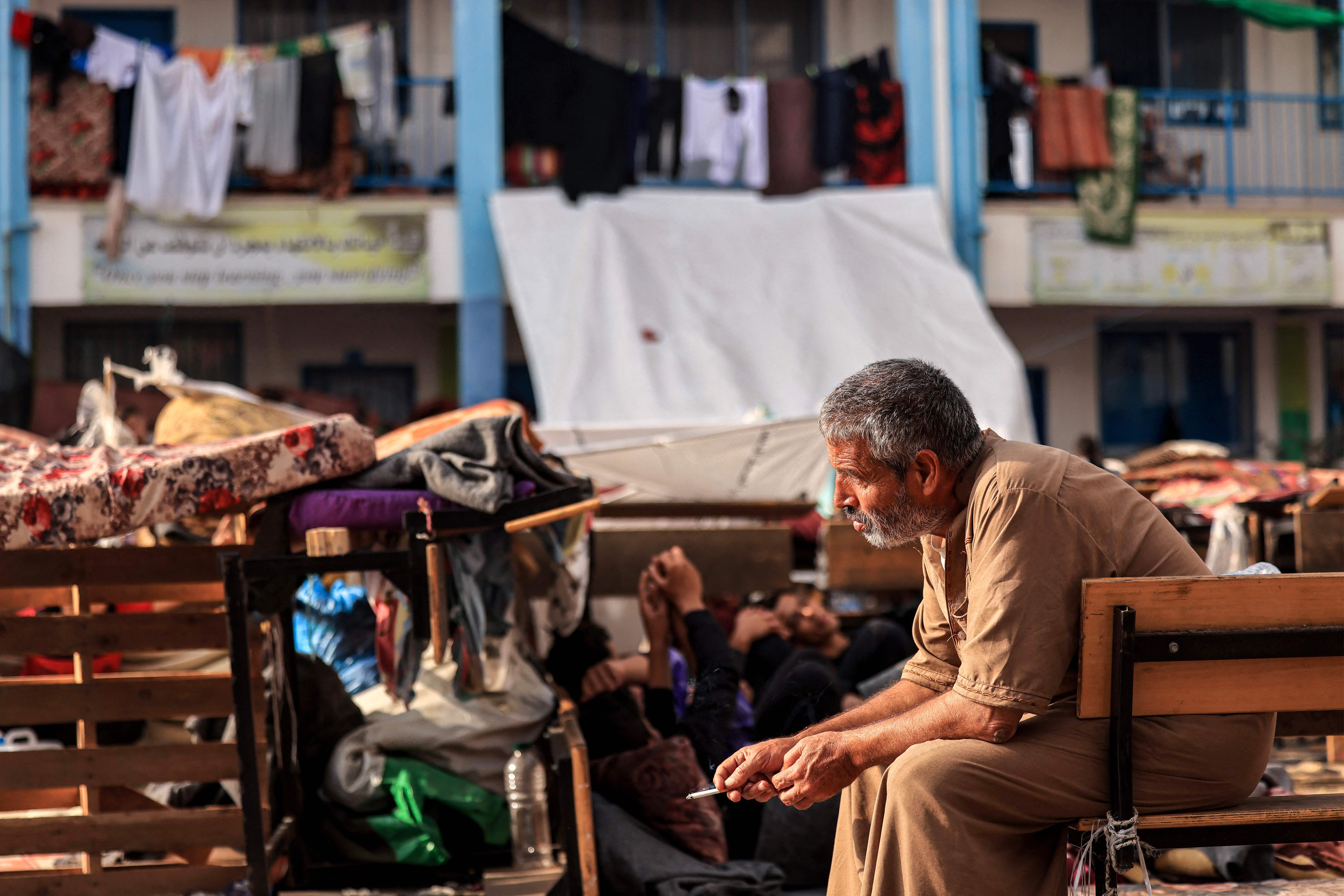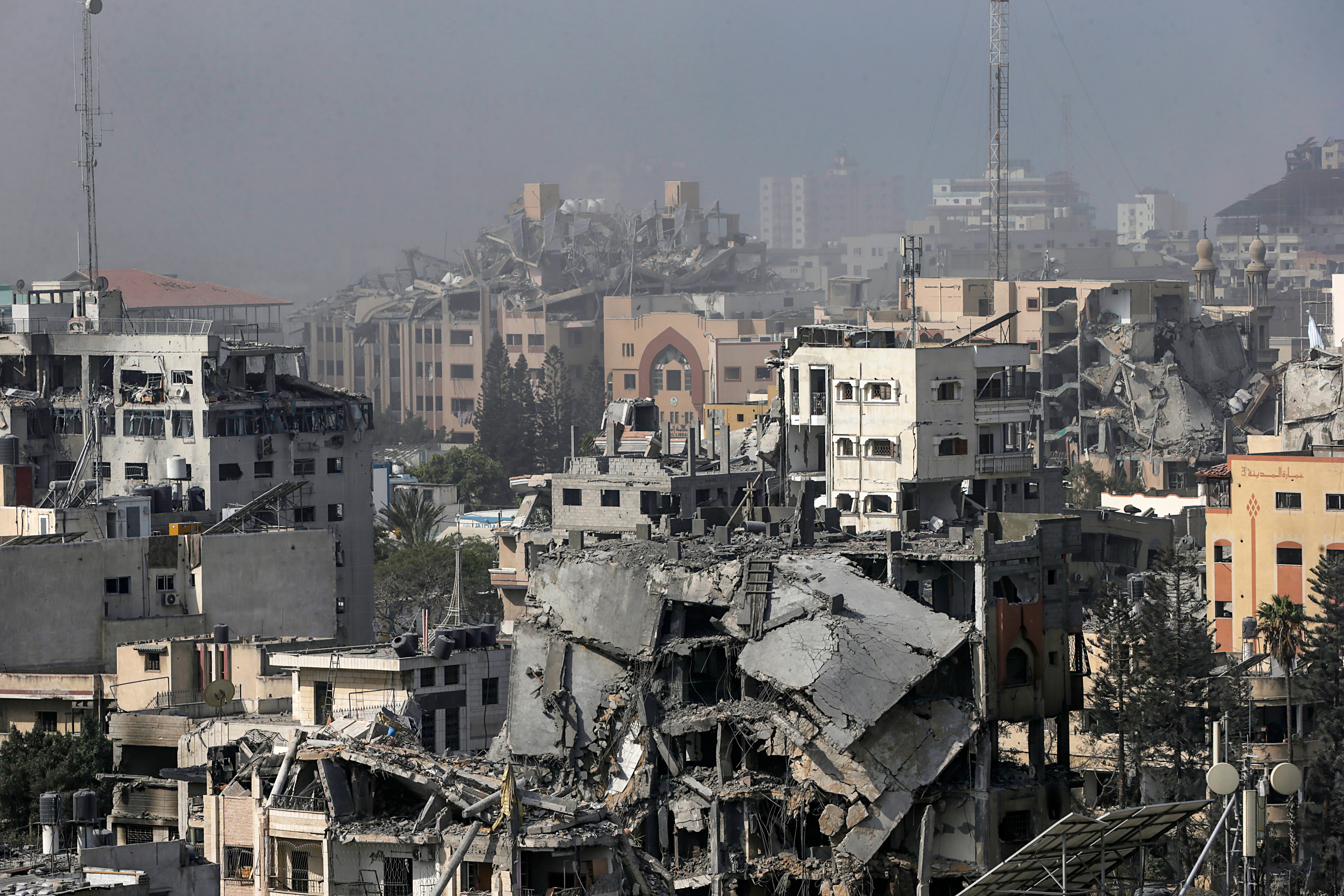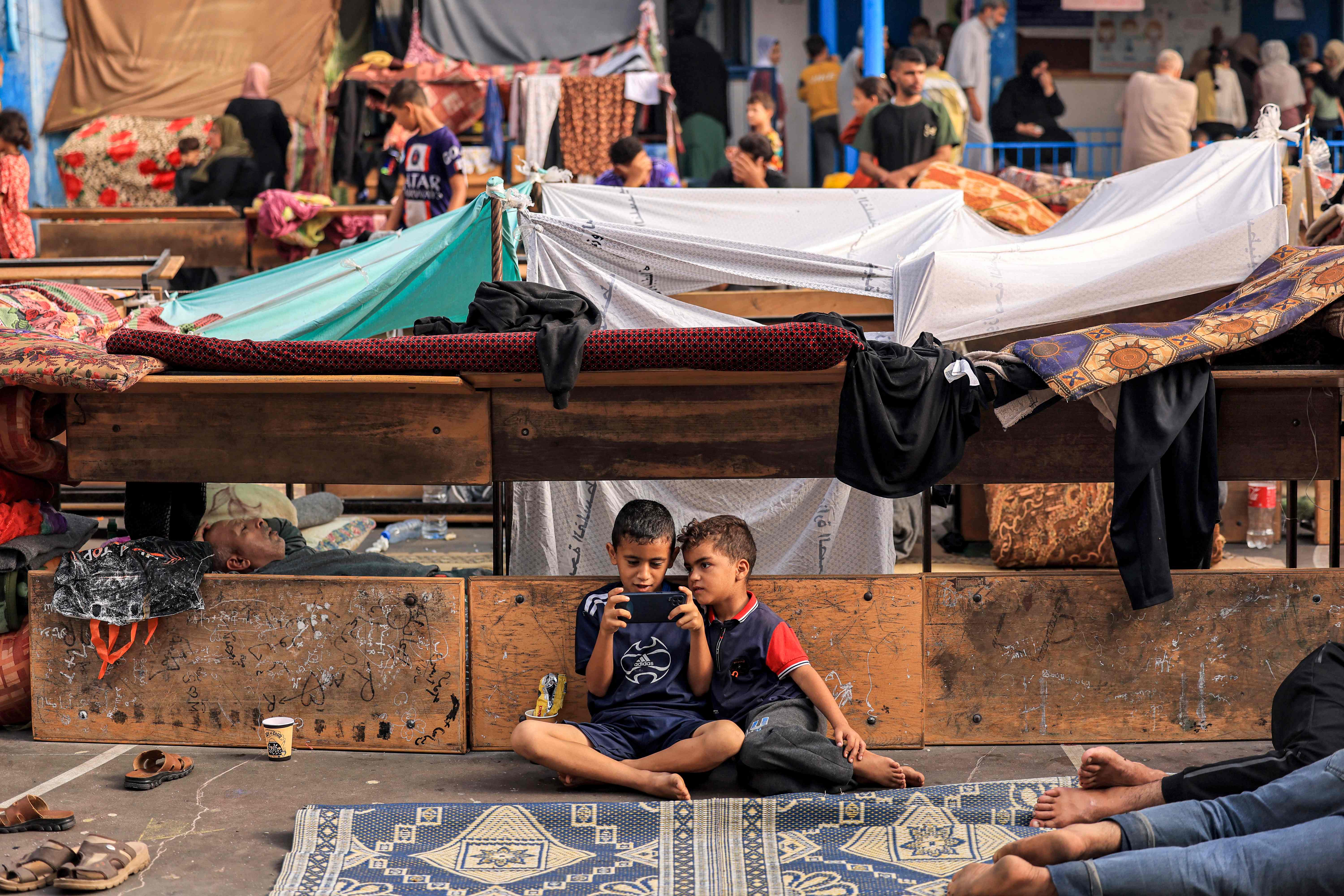‘Where will they go when the crisis is over?’ Fears for 1.4m Palestinians displaced by Israeli airtstrikes
UN reports suggest 42 per cent of housing in Gaza has been destroyed following Israeli bombardment

Your support helps us to tell the story
From reproductive rights to climate change to Big Tech, The Independent is on the ground when the story is developing. Whether it's investigating the financials of Elon Musk's pro-Trump PAC or producing our latest documentary, 'The A Word', which shines a light on the American women fighting for reproductive rights, we know how important it is to parse out the facts from the messaging.
At such a critical moment in US history, we need reporters on the ground. Your donation allows us to keep sending journalists to speak to both sides of the story.
The Independent is trusted by Americans across the entire political spectrum. And unlike many other quality news outlets, we choose not to lock Americans out of our reporting and analysis with paywalls. We believe quality journalism should be available to everyone, paid for by those who can afford it.
Your support makes all the difference.Hundreds of thousands of Palestinians have been left homeless after weeks of airstrikes - figures that only look set to increase given Israel steps up its ground operations inside Gaza.
On 13 October, one million people were ordered by Israel to evacuate northern Gaza. The move garnered international criticism with the World Health Organization calling it a “death sentence for the sick and injured” and the UN warning it was impossible to execute and would lead to a “calamitous situation”.
The call to evacuate was repeated on 21 October with leaflets dropped in the north of the strip telling residents to leave “immediately”. It prompted Amnesty International to release a statement suggesting that the order could amount to a war crime under international humanitarian law.
Israel says it is targeting Hamas terrorists in the enclave after more than 1,400 people were killed in the 7 October attacks. But three weeks later around 60 per cent of the 2.3 million inhabitants of Gaza are now displaced, the UN says.

Newlywed Shouq Alnajjar is among the thousands of civilians who lost their home in the conflict. She only moved into her apartment with her husband in the Al Remal district in the northern part of the Gaza strip last year- a neighbourhood she says is known for being one of the biggest and “most beautiful”.
Like any other excited young bride, she had been furnishing and decorating her new place – a home she has since abandoned for both of their safety. “I don’t know if it still exists,” she told The Independent.
Now, she finds herself living with over 150 other family members in a three-apartment complex in Khan Younis made for 15 to 25 occupants.
“There are ten people to each room,” she says. “There are at least thirty children here. People take it in turns to sleep, whether on the floor or on mattresses.”
Another Gazan who made the move to the south after Israeli orders, is Younes Elhallaq, 24. He was studying English Language and Literature at the Islamic University of Gaza before it was bombed.

He said: “Last night the place I’d evacuated to was targeted by Israeli fighter jets. I had to evacuate again. I can barely connect to the internet. I’ve never gone through anything like this.”
“We really believed it would be safe in the south,” he said. “But there have been air strikes and attacks here too, even on the schools.”
Younes says he loves writing and wants to be a journalist and is part of the We Are Not Numbers initiative which documents the lives behind the statistics of people killed.
“I miss my home, I miss everything,” he said. “I feel like I’m in prison. Imagine if you couldn’t travel from Manchester to London, no matter how much money you have. I miss my friends. My university was beautiful. I was in my last year and last week it was bombed.”
The United Nations Palestinian refugee aid agency, UNRWA, estimates that more than one million people followed the order with around 300,000 remaining in the north. However, as Israeli airstrikes continue in the south, local humanitarian workers say some are moving back to the north to “die with dignity” as “nowhere is safe”.

One worker said: “People are worried about a new Nakba. They are reminded of black and white pictures of their parents being displaced.”
The Nakba, or “disaster” is what Palestinians call the period around the 1948 Arab-Israeli war in the wake of Israel’s founding. Hundreds of thousands of people were expelled or fled from the territory captured by Israel. According to the UNRWA, that’s important context and considering the reaction to evacuation orders during the current conflict. A spokesperson said: “One of our main worries is that this is a new forced displacement.”
Over 600,000 evacuees are staying in UNRWA schools which have been converted to shelters. As hundreds of thousands left their homes in a rush, many left all their belongings behind.
“I took a light jacket and my work laptop,” said Shouq. “We took our passports and marriage documents and hoped we could figure the rest out later.”
UNRWA told The Independent that many people had left with only the clothes they had on. “The conditions are dire,” the spokesperson said. “It’s very unsanitary. Several hundred people are sharing one set of toilets per floor. We’re providing one bag of bread per family per day. Everyone gets 3 litres of water per day to do everything they need to.
“We’re hearing stories now of people saying ‘I really want to bathe my kids’ or ‘I want to wash their hands’. There’s also the special situation of women and adolescent girls on their periods. There’s no pads, there’s no water.
“Once the humanitarian crisis is over, once we have the bread and the fuel – where will all these people go?”
Join our commenting forum
Join thought-provoking conversations, follow other Independent readers and see their replies
Comments